Cast Your Vote: Should President Obama Pardon Whistleblowers?
The current presidential candidates have expressed opinions about the punishment of whistleblowers, with ideas ranging from execution to full pardons. In light of renewed debate over the cases of Edward Snowden, Julian Assange and Chelsea Manning, we want to hear what you think.
In a video interview with The Guardian, Edward Snowden explained why he should receive a pardon. (Screen shot via The Guardian)
Oliver Stone’s new drama, “Snowden,” appeared in theaters nationwide last week, and while the film may have garnered a positive response, real-life whistleblower Edward Snowden continues to face criticism for his actions. In fact, much of the week’s top political news revolved around intelligence, national security and the legal ramifications of whistleblowing.
This renewed attention to Snowden’s case began Tuesday, when The Guardian published a video interview with Snowden, currently living in self-imposed exile in Russia. In the interview, he made a case for why he should receive a presidential pardon:
Yes, there are laws on the books that say one thing, but that is perhaps why the pardon power exists—for the exceptions, for the things that may seem unlawful in letters on a page but when we look at them morally, when we look at them ethically, when we look at the results, it seems these were necessary things, these were vital things. …
I think when people look at the calculations of benefit, it is clear that in the wake of 2013 the laws of our nation changed. … The Congress, the courts, and the president all changed their policies as a result of these disclosures. At the same time there has never been any public evidence that any individual came to harm as a result. …
If not for these disclosures, if not for these revelations … we would be worse off.
Many human rights groups, latching on to the publicity surrounding the release of “Snowden,” redoubled their call for Snowden to receive a pardon. “The question of whether I, as a whistleblower, should be pardoned is not for me to answer, but I will say this: I love my country. I love my family. And I have dedicated my life to both of them,” Snowden said last week. “But I cannot support the persecution of those charged under an espionage act when they have committed no espionage.”
Meanwhile, on Thursday, the House Intelligence Committee unanimously signed a letter urging President Obama not to pardon Snowden. “Snowden caused tremendous damage to national security, and the vast majority of the documents he stole have nothing to do with programs impacting individual privacy interests—they instead pertain to military, defense and intelligence programs of great interest to America’s adversaries,” the committee wrote in an accompanying report.
Mainstream media also played a role in the renewed focus on Snowden. Just two days after the premiere of Stone’s film, The Washington Post editorial board published an article titled “No pardon for Edward Snowden.” Many were quick to point out the inherent hypocrisy of the piece, including Glenn Greenwald of The Intercept:
In the face of a growing ACLU and Amnesty-led campaign to secure a pardon for Snowden, timed to this weekend’s release of the Oliver Stone biopic “Snowden,” the Post editorial page today not only argued in opposition to a pardon, but explicitly demanded that Snowden—the paper’s own source—stand trial on espionage charges or, as a “second-best solution,” accept “a measure of criminal responsibility for his excesses and the U.S. government offers a measure of leniency.”
In doing so, the Washington Post has achieved an ignominious feat in U.S. media history: the first-ever paper to explicitly editorialize for the criminal prosecution of its own source — one on whose back the paper won and eagerly accepted a Pulitzer Prize for Public Service. But even more staggering than this act of journalistic treachery against the paper’s own source are the claims made to justify it.
While Stone’s film brought Snowden’s case back into the forefront of mainstream media, other whistleblowers made headlines last week for their efforts to hold the U.S. accountable for its intelligence efforts.
Prior to its interview with Snowden, The Guardian wrapped up a three-part investigative series on Daniel Jones, a Senate investigator targeted by the CIA. Jones was named our Truthdigger of the Week over the weekend. Associate Editor Alexander Kelly writes:
In 2010, Jones and his team came across the results of a parallel inquiry the CIA conducted into itself to gain an understanding of its own use of torture. The authors of that document—which Jones dubbed the “Panetta Review,” after former CIA Director Leon Panetta—concluded that “the CIA misrepresented the success of the program to the president of the United States, the Congress and the United States people,” said Jones. The discovery prompted Jones to take drastic action.
“The CIA has a history of destroying its documents, destroying its own records,” Jones told The Guardian. “And this was a record that was so incongruent with the CIA’s response that they gave to us, we felt a need to preserve it.
“To preserve that document … we decided to bring back a portion of that document to the Senate Intelligence Committee.” In violation of the committee’s agreement with the CIA, one night after midnight in the summer of 2013 Jones printed out pages he considered to be crucial to the Senate’s investigation, placed them in a messenger bag, drove to his office on Capitol Hill and placed them in a safe.
Late last week, WikiLeaks Editor in Chief Julian Assange and Chelsea Manning also re-entered the public eye when Assange declared that he would turn himself in to the United States under one condition: President Obama would need to pardon Manning, a former soldier who leaked documents to WikiLeaks.
If Obama grants Manning clemency, Assange will agree to US prison in exchange — despite its clear unlawfulness https://t.co/MZU30S3Eia
— WikiLeaks (@wikileaks) September 15, 2016
Although the controversy surrounding these whistleblowers is again dominating our political dialogue, critiques of Snowden, Assange and Manning are nothing new. John Kiriakou, a former CIA analyst who spent two years in prison for exposing details about U.S. torture, spoke with Truthdig Editor in Chief Robert Scheer earlier this year. “This is exactly what our senior government officials do every time they’re embarrassed by a revelation, is that they try to pass the blame on to somebody else,” Kiriakou said. “The truth of the matter is, we can certainly fight against terrorism and fight terrorist groups around the world without having to give up our own civil liberties. They’re not mutually exclusive.”
This renewed focus on whistleblowing and its legal ramifications comes at an important political moment. With the November election rapidly approaching, many Americans were reminded last week of Obama’s role in the judicial process surrounding treason. More than two years ago, CNN’s Jake Tapper correctly stated that the Obama administration has used the Espionage Act to persecute whistleblowers more than all prior administrations combined.
Current Democratic presidential nominee Hillary Clinton has previously said that she could “never condone” what Snowden did, and has recently argued that he needs to “face the music” for his actions. Republican presidential nominee Donald Trump has called for Snowden’s execution.
Green Party presidential nominee Jill Stein, meanwhile, added to The Guardian’s recent coverage by writing an opinion piece in favor of pardoning Snowden. Libertarian presidential nominee Gary Johnson has stated that, if elected, he would “certainly look into pardoning” Snowden.
In the face of all of the arguments surrounding national security and whistleblowing efforts, we turn to you: Should any of these whistleblowers be pardoned for their actions?
Let us know in the poll below. You can select multiple answers if you believe that only two of the three deserve a pardon, or you can select “none of the above” if you believe that none of these cases merit a pardon from Obama. One vote per person, please. (Make your selection and then click on “Vote.” To see results of the polling, click on “Results.”)
Independent journalism is under threat and overshadowed by heavily funded mainstream media.
You can help level the playing field. Become a member.
Your tax-deductible contribution keeps us digging beneath the headlines to give you thought-provoking, investigative reporting and analysis that unearths what's really happening- without compromise.
Give today to support our courageous, independent journalists.
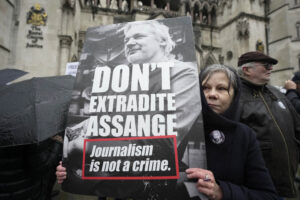
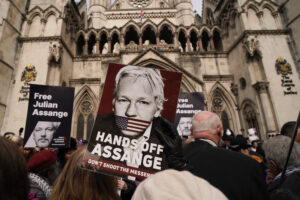

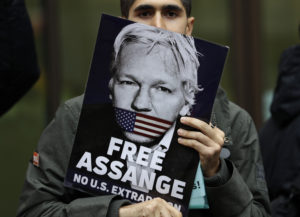
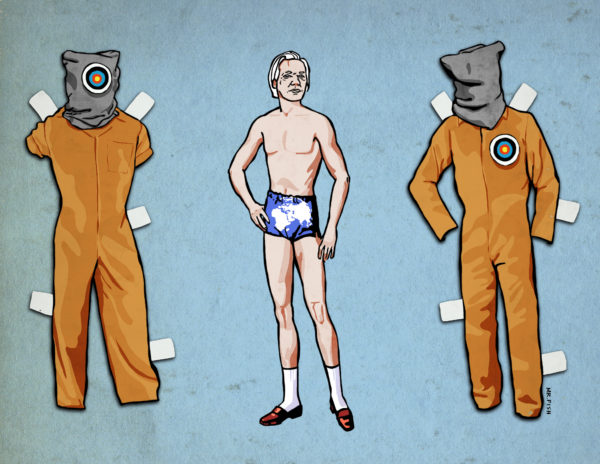
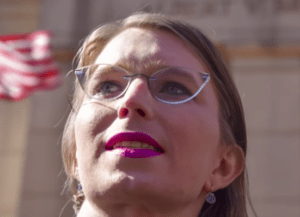
You need to be a supporter to comment.
There are currently no responses to this article.
Be the first to respond.